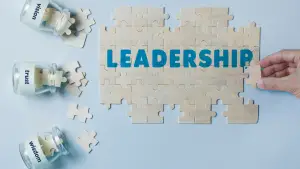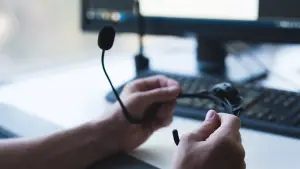Sexual harassment is not a strange word or concept in society, it has been present for centuries. Just about anyone can be sexually harassed, no matter their gender or age. From the Oxford dictionary, we get the meaning by search as a “behavior characterized by the making of unwelcome and inappropriate sexual remarks or physical advances in a workplace or other professional or social situation.” By this meaning, we decode that sexual harassment is any sexual behavior that is unwanted and seemingly inappropriate. In the next paragraphs, we will look at the use of sexual harassment in universities in Nigeria.
In today’s society, it seems that women have experienced a higher rate of sexual harassment than men. Due to the popularity of the rate of sexual harassment by women, it is often perceived that men cannot be harassed sexually. This is a false notion as sexual harassment is not limited to gender, age, religion, or sexuality.

Sexual Harassment in Universities
Sexual harassment in the education sector has been a pressing problem for past decades, it affects students around the globe and is targeted at students by teachers and lecturers. The system is one that has eaten deep into the neck of schools today. Most times it is associated with a reward system often referred to as quid pro quo – meaning exchange of one thing for another, in this sector, sex for grades. When a school teacher or lecturer conditions a student’s participation in a program on the student’s submission to unwelcome sexual advances.
The student is coerced into having a sexual relationship with a lecturer under the threat of failing a course. In Nigeria, it is a popular trend as you can rarely find any higher institutions without sexual harassment, especially in public universities. It is also present in private universities just as the public universities. Still, due to the nature of the institution, it is scarcely reported more so publicized and swept under the rug in order to maintain the reputation of the university and also the fear of being expelled. However in public universities, things are handled differently also because of its nature, and unlike the situation of private universities, it is publicized.
Recently law students of the University of Calabar had a protest in front of the faculty and around the campus premises. The protest took place on the 18th of August 2023 and was reported to have taken place at noon. Female students of the university marched around with placards reading words like “WE ARE TIRED OF SUCKING D*CKS”, “LET GIRLS WITH BIG BREAST BREATHE, STOP SUFFERING US”, “ENOUGH OF LAW SCHOOL LIST MANIPULATION”, PROF NDIFON MUST GO FOR OUR SANITY”. The internet literally caught fire with the news and all over social media different confessions were also dropped.
The problem is that the said Dean of the faculty of law, sexually harasses the female students for grades and for slots in the law school lists. After a swift investigation, it was also discovered that said Prof Cyril Osim Ndifon was also accused of rape in 2016 but was left to go scot-free and re-instated as the Dean of the faculty in 2022. Sexual harassment in universities goes by the term “sex for grades”. This is because to get grades you have to engage in sexual relationships with these lecturers.
In the educational system, getting grades (informally) usually comes in two methods, one being “in cash” i.e. payment of money by any price stated by the lecturer. Or “in kind” which is by engaging in sexual activities.
90% of those involved in these activities are threatened, coerced, or forced by these lecturers and some are even raped. These women cannot gain justice because they fear that they will not be listened to as these men are viewed as well-connected individuals. Some victims live with shame and tight lips. When the news of the UNICAL protest broke on the internet, the comment sections on the blog sites that carried the news unfolded new stories.
Women began speaking on similar fates and how they continued their lives without speaking up. And they expressed their joy that he had finally been caught. But let us be honest, shall we? Is he really going to get what he deserves? We will have to wait for the Judiciary to do us a solid because an abuser of this magnitude should not be put back in society.
Sexual harassment behavior usually is a manifestation of power play, with the perpetrator taking advantage of their superior position or their economic superiority to lure and sexually intimidate victims. It has a negative impact on the victim and their ability to participate in the educational program. It creates a hostile and unhealthy environment for learning. This has been seen unfold multiple times and the UNICAL matter is just one out of many in Nigeria.
In many cases, the victims cannot speak up because they are subsequently threatened and are scared of the harshness of society. For example, there is the concept of victim blaming and discouragement to report the case amongst others, due to the stigma attached to confessing or reporting such a crime.
Victim blaming is a concept that reasons that a person who has experienced abuse is being blamed for the supposed abuse. Or they were abused as a result of something they did, instead of placing the responsibility where it belongs (in the hands of the perpetrator). Statements made on the matter connote that the victim is equally responsible and to blame for the abuse.
When in reality, abuse is a conscious choice made by the abuser. Questions are directed to the outfit the victim was wearing at the time of the abuse, trying to connote that the abuser was lured by the choice of clothing of the victim. And it appears that the victim was trying to seduce the abuser and got what she intended.
Society brings such questions on board when these matters are brought up, always putting the victim in compromising positions. Victim blaming is an everyday concept that shrinks the victim, which discourages the victim from speaking up. Rather than be blamed for an act that happened under control and be blamed for it, saying nothing seems like a better option.
Society plays a major role in discouraging the report of these cases, when there is a case of sexual harassment or rape by a lecturer or professor, victims are afraid of the threats they might have received from their abuser. When some of these cases are usually reported, the victims get remarks about how powerful the lecturer might be. Who the abuser might know in high places or how either way the case will be quashed and it is better not to speak. In cases where the matter is reported to the police, they are usually reluctant to take the case and even try to extort money from the victims disguised as an “investigation fee”.
When in reality they just want to stuff their pockets with beer money. When the case is critical and he is eventually reprimanded, he pays an amount of money which is given to the victim as compensation, of course after they have snooped and taken what they can. This is not what the victim seeks to gain, justice is what the victim needs. Justice and hope that the crime will not occur again and they (victim) can continue to live in peace without fear, content that the perpetrator will pay for their crime.
Crimes like this keep on happening and will continue to happen with a failed system. An example is the UNICAL scene, it is quite disheartening that a man guilty of rape will be re-instated in his former position after a few years. Instead of stripping him of his teaching license or rusticating him from the university he is glorified in his former role as though nothing had happened.
When these delicate issues arise they should be handled with every fiber of seriousness and not treated as a petty matter. It is certain we witness them here and there, we shouldn’t let them as letting it slip. Doing that is just as bad.





